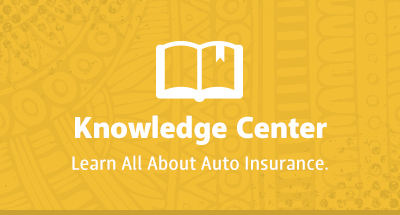What is Car Insurance
When you’re behind the wheel, the road can sometimes feel like a daunting place. Whether it’s a minor fender-bender or a major accident, it may be important to invest in auto insurance to help you navigate certain driving situations. But what is car insurance and what does car insurance cover?
Here, we’ll help break down specific auto insurance definitions, what coverage is required in Texas and Nevada, and how you may be able to find affordable car insurance coverage in both states.
So, what does car insurance mean?
Car insurance is a financial agreement between you and an insurance company. You will typically pay a monthly or yearly premium, and in return, the insurance company may help cover specific damages after a covered accident. Usually, car insurance will have a deductible, which is the amount you may pay out of pocket after a claim before your insurance kicks in.
Depending on your policy, car insurance may help pay for repairs or damages to your vehicle or someone else’s vehicle. If you’re worried about paying too much out-of-pocket after an accident, finding the right "full coverage" policy may also help you limit large expenses after covered incidents.
This guide may be especially helpful for drivers in Nevada and Texas, where the car insurance landscape can vary. If you’re a high-risk driver or someone new to these states, understanding your insurance options and requirements may help you stay compliant with state law.
Types of car insurance coverage
Car insurance is a term typically used to describe a variety of coverages. There are different types of coverage options available to you, depending on your needs and the state you’re in. Here, we’ll break down some common types of car insurance that may be necessary for you.
Liability insurance
Liability insurance is commonly required in many states, including Nevada and Texas. Typically, liability coverage is split into two parts:
- Bodily injury liability: This can help cover the medical costs for a third-party injured in an accident that you cause.
- Property damage liability: If you cause damage to someone else’s property like a car or fence, this coverage can help pay for those repairs.
Collision coverage
Collision coverage can help pay for the repairs to your car after an accident, regardless of who’s at fault. Whether you hit a tree, another vehicle, or a guardrail, this coverage may help cover your car’s damage.
Comprehensive coverage
While collision insurance can help cover damage to your car from accidents, comprehensive coverage can help pay for damage to your car from non-accident-related events. This may include theft, vandalism, severe weather, or hitting an animal like a deer.
Uninsured/underinsured motorist coverage
What happens if you’re in an accident with someone who doesn’t have insurance, or doesn’t have enough? Uninsured/underinsured motorist coverage (UM/UIM) can help pay for repairs to your vehicle after an accident with an at-fault uninsured driver. This coverage may also be able to cover medical expenses or lost wages if you’re injured by an at-fault uninsured driver.
Medical payments (MedPay) or personal injury protection (PIP)
MedPay or PIP can help cover medical expenses, like ambulances and hospital bills, if you or your passengers are injured in an accident, regardless of who’s at fault. PIP may extend to covering other expenses, like lost wages and rehabilitation costs. PIP is also required in certain states, like Florida and New York.
Roadside assistance
If you’re stuck on the side of the road with a flat tire or dead battery, roadside assistance may help with certain services like towing, battery jump-starts, or lockout services.
Rental reimbursement
If your car is being repaired after a covered accident, rental reimbursement may help cover the cost of a rental vehicle while you’re waiting for your car to be fixed.
Auto insurance requirements in Texas and Nevada
Each state has different minimum requirements for car insurance. Like stated previously, liability insurance is required in both Texas and Nevada. As of May 2025, here’s the state minimum liability limit in Nevada:
- $25,000 for bodily injury per person
- $50,000 for bodily injury per accident
- $20,000 for property damage
In Texas, the minimum required liability coverage is:
- $30,000 for bodily injury per person
- $60,000 for bodily injury per accident
- $25,000 for property damage
While these are the state minimums, drivers can opt for higher coverage limits. If you can’t afford to pay for damages out of pocket, you may want to increase your liability limits to help pay for more severe repairs.
Driving without insurance
Driving without insurance is illegal in both states, and the penalties can be lofty. If you're caught driving without insurance, you may face:
- Fines
- License suspension
- SR-22 filings, which may make it harder and more expensive to get insured afterwards
- Impoundment of your vehicle
Plus, driving uninsured may negatively affect your future insurance rates and last on your driving record. This is why driving with your state’s minimum required auto insurance may be crucial to keeping your rates low.
How to get auto insurance in Nevada and Texas
If you’re ready to get car insurance, Agencia de Seguros de Accesso, LLC and Access Insurance Agency of Nevada, LLC (A Abana) can help you. Here are some ways we can assist you with your insurance journey:
- Knowledge from experienced agents: Our agents are familiar with both Texas and Nevada laws, helping you find coverage that aligns with your needs while staying compliant with the law.
- Compare quotes: Rates may vary significantly, especially for high-risk drivers. We can compare quotes from multiple insurance providers to help you find the best fit for your budget.
- Offer discounts: Our carriers have discounts that you may be eligible for. Some of these discounts include paying your premium in full, bundling multiple vehicles under one policy, and getting good grades at school. Ask our experienced agents to see which discounts you may qualify for.
Car insurance is more than just a legal requirement, it can also help prevent you from financial distress after a covered accident. By understanding the types of coverage available, knowing your state’s requirements, and working with the right insurance provider, you may be able to better navigate certain driving incidents in Texas or Nevada.
Looking to update your policy? Call A Abana today at 214-764-8868, check out our website, or visit a local store in Nevada or Texas for a free personalized quote!
Disclaimer:
This material is for general informational purposes only. Products, services, and discounts referenced herein are not available in all states or in all companies. All statements are subject to the terms, exclusions, and conditions of the applicable policy. In all instances, current policy contract language prevails. Coverage is subject to individual policyholders meeting the insurer's underwriting qualifications and state availability. Other terms, conditions and exclusions may apply.
Disclaimer:
These descriptions are meant to assist you in determining your auto insurance needs. These are not complete descriptions and do not constitute an insurance contract or coverage for specific losses. For a complete description, please consult your policy contract or contact your insurance agent.






